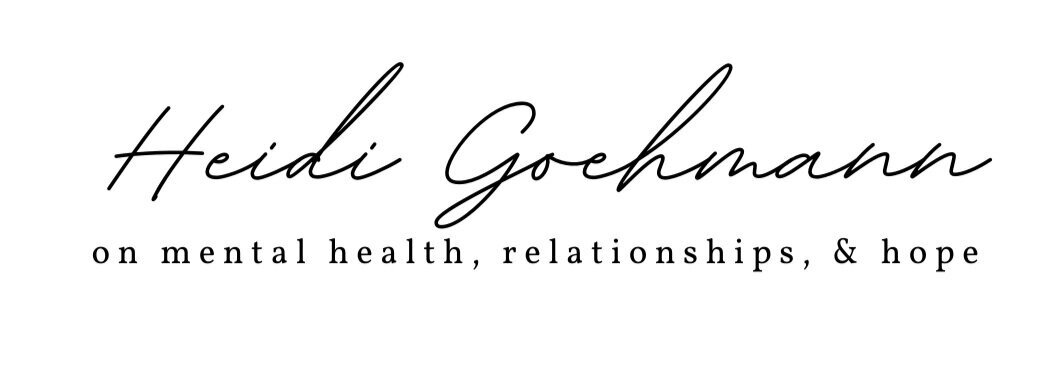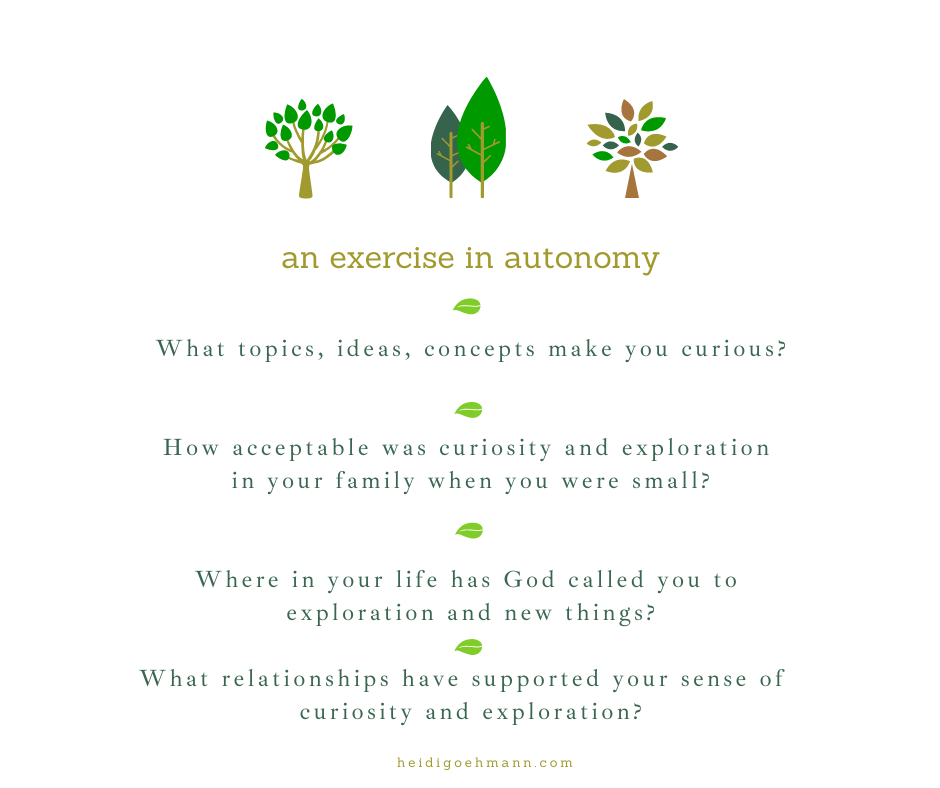Always Growing: No Shame in Curiosity
Tucked inside each of us, we have a free will. God doesn’t create tiny puppets to do His bidding. He doesn’t shuffle us around like life-sized chess pieces.
Life actually has very few enduring rules. God gives humans guidance in the form of broad-brush strokes most often, rather than step-by-step directions for each day or each season.
This freedom is wonderful and can also be stressful. Figuring out life can be confusing whether you’re 19 years old or 70 years old. Now, imagine life as a two-year-old, dropped into a family, a life, without instructions, learning as you go.
God gives children adults, in and outside of their immediate family, to not only keep them safe but also to help them learn and grow into independence. This independence learning comes in waves throughout life but is especially strong from 18 months to 3 years, approximately. We call this stage autonomy versus shame and doubt.
A toddler’s brain takes in information like rocket fire. As little bodies take in loads of new information, they also learn to balance their individual free will with the will of others and with God’s will. Small children learn values slowly over time, as well as all the things we call “common sense.” It is a learned skill to hold a hand in a parking lot and to tell the truth when someone asks who ate the jelly beans.
Toddlers and preschoolers need a lot of freedom to explore in safe spaces. We need to practice exerting our will so that we can practice yes and no and kindness and courage. We need to practice bending to another person’s will in patience. We need to practice humbly asking for forgiveness when we become overwhelmed with new information and life; when we throw our toddler bodies on the grocery store floor. We need to experience the freedom of making choices, making mistakes, and being worthy of love no matter the outcome.
Autonomy is really about the freedom of curiosity.
When given big freedom with thoughtful boundaries, children grow up believing they are capable, no matter the task. They grow up believing they may not have the answer, but they can discover and find help. And life will bring every child some pretty big tasks someday. Life will find each of us in need of help at some point.
Autonomy is how kiddos become curious learners who believe they can invent new cancer treatments, dance on a stage, or fix a sink.
Autonomy is how kiddos become people who believe they can be a voice for the voiceless, help when someone is hurting, and find help on the days when they are the ones hurting.
The inverse of autonomy, or allowing for curiosity and a sense of free will, is shame and doubt. When children are not given some freedom to explore and learn or are not given any direction or boundaries, they will walk through life holding that early shame and doubt close to their chests. They become teens, and one day adults, who have a hard time stepping out of the shadow of one or more of these beliefs about themselves and others:
Curiosity is naughty.
When someone gets hurt, the solution is blame or shame.
We can control everything if we try hard enough.
We control nothing.
If I do something wrong, I am not worthy of love.
We are creatures with psyches that like to jump to conclusions. To protect ourselves, we look for shame to come from nearly every situation, if shame is what we learned very young in large or small ways.
We all need another ingredient in the developmental soup of our lives:
We need grace.
Children will always try to touch the hot stove, eat the playdough, and hit someone to get their toy back. Gentleness, kind instruction, firm, clear statements, and forgiveness – these are the things that help them receive new information about the world, integrate it into their understanding, and find the assurance of a safe place to land when they make a mistake. Then, they can move back into the world to explore with zeal, resilience, and moxie. When they receive grace, they become bearers of grace, rather than holders of shame and doubt.
Parents and caregivers will scold too quickly, protect too fervently, or fail to protect at times, or frequently, in their imperfection. We need loads of grace … for ourselves, and for those who have cared for us.
We continue developing our autonomy across our lifespan, particularly when grace is part of the mix. We learn and grow and throw off shame as we walk forward. We test boundaries in the new relationships of young adulthood. We get feedback on our words and actions, and we move forward a few steps. We take a class or dive into therapy and we learn some fresh insight about ourselves and this world in which we live. We ask God for help and healing, and He is faithful. In grace we learn we can change, we find some compassion for ourselves, and for others, we grab onto to a new belief that we are capable.
Philippians 4:13 speaks to our sense of capability and curiosity:
I can do all things through him who strengthens me.
God creates us capable, and we discover that capability through curiosity, but the world will toss and turn us. Jesus strengthens. That strength is how we make it out of shame and doubt. We grab onto that strength today and each day ahead.
Tell me in the comments, what makes you curious? When in your life has God called you to the exploration of something new? How has He removed the shame and doubt that screams we are not capable, or we are not worthy? What relationships in your life support your curious exploration of who God is and His plans for you?
We are always growing…in autonomy, curiosity, and grace, peeling shame off, one layer at a time.
Up Next
Mental Health Monday on Shame, Autonomy, and Cognitive Growth with special guest Dr. Kim Marxhausen
“Building Kid-Friendly Faith Communities” with Sue Steege + Jesus in Everything: Stuffed Animals with Pastor David Goehmann
Tune in to the Coffee Hour Podcast from kfuo.org to hear more from Biblical and psychological research on what builds autonomy and curiosity and what brings shame and doubt from infancy to adulthood. Access the live content every Monday morning at 9am CST or find the archives here:


